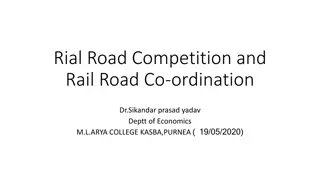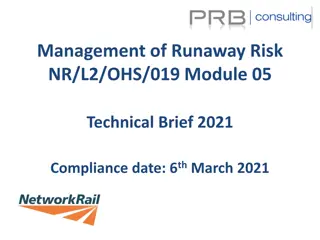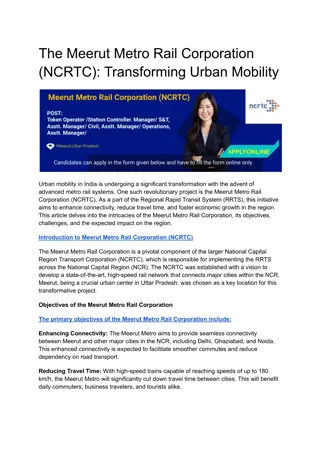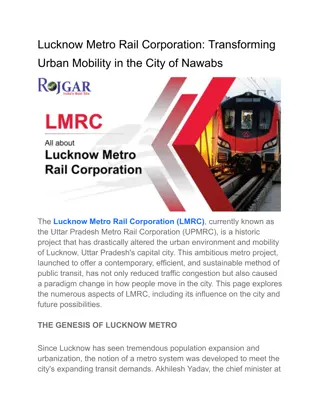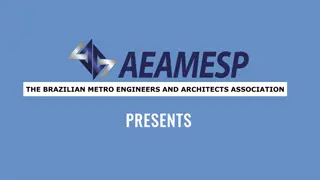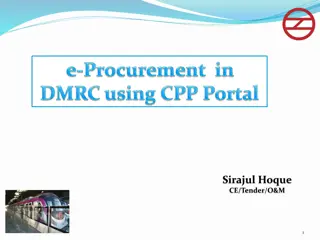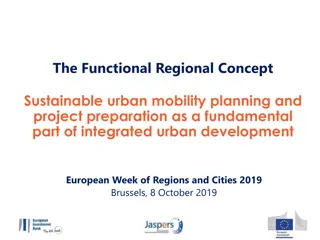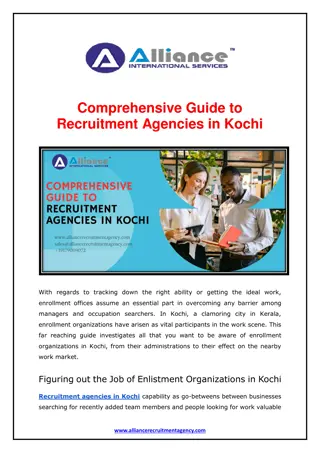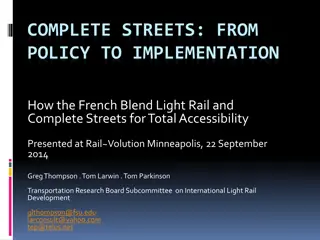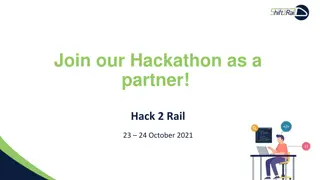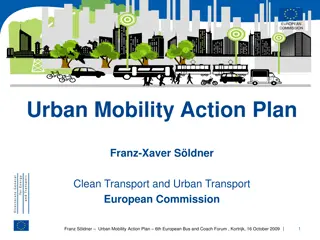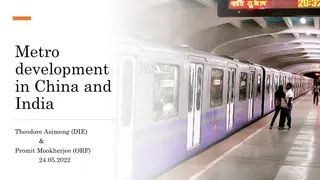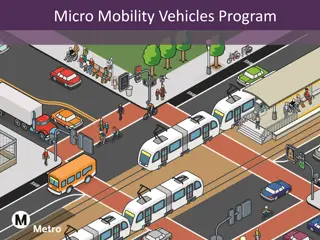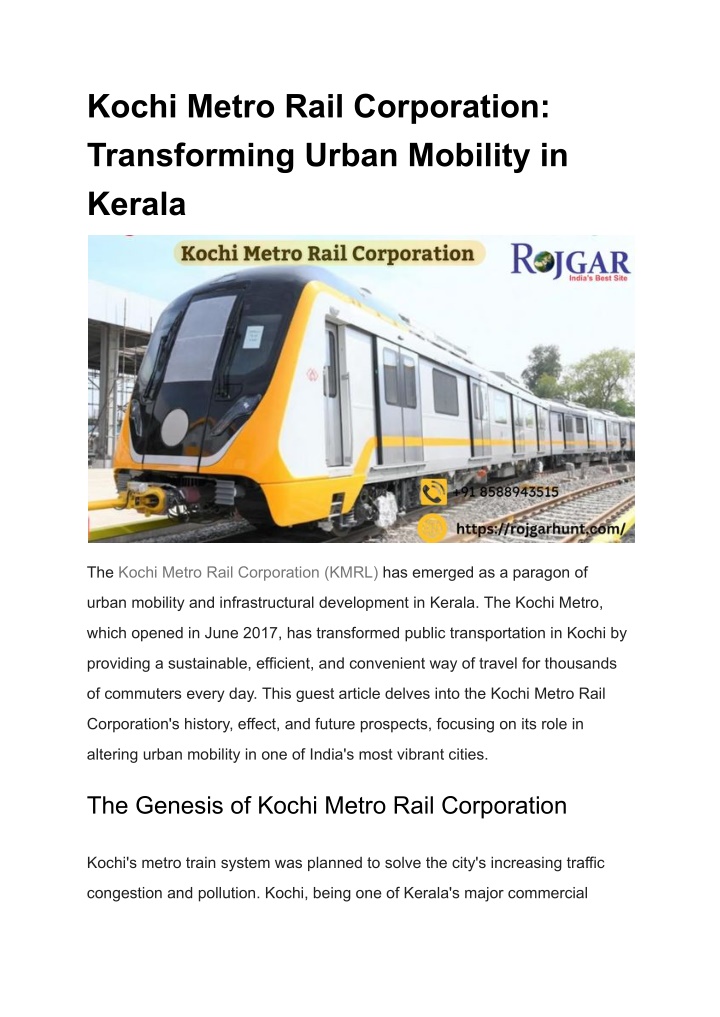
Kochi Metro Rail Corporation_ Transforming Urban Mobility in Kerala
The Kochi Metro Rail Corporation (KMRL) has emerged as a paragon of urban mobility and infrastructural development in Kerala. The Kochi Metro, which opened in June 2017, has transformed public transportation in Kochi by providing a sustainable, effic
Download Presentation

Please find below an Image/Link to download the presentation.
The content on the website is provided AS IS for your information and personal use only. It may not be sold, licensed, or shared on other websites without obtaining consent from the author. If you encounter any issues during the download, it is possible that the publisher has removed the file from their server.
You are allowed to download the files provided on this website for personal or commercial use, subject to the condition that they are used lawfully. All files are the property of their respective owners.
The content on the website is provided AS IS for your information and personal use only. It may not be sold, licensed, or shared on other websites without obtaining consent from the author.
E N D
Presentation Transcript
Kochi Metro Rail Corporation: Transforming Urban Mobility in Kerala The Kochi Metro Rail Corporation (KMRL) has emerged as a paragon of urban mobility and infrastructural development in Kerala. The Kochi Metro, which opened in June 2017, has transformed public transportation in Kochi by providing a sustainable, efficient, and convenient way of travel for thousands of commuters every day. This guest article delves into the Kochi Metro Rail Corporation's history, effect, and future prospects, focusing on its role in altering urban mobility in one of India's most vibrant cities. The Genesis of Kochi Metro Rail Corporation Kochi's metro train system was planned to solve the city's increasing traffic congestion and pollution. Kochi, being one of Kerala's major commercial
cities, experienced substantial urban transportation issues as its population grew and the number of vehicles on the road increased. The objective was to build a world-class metro system that would not only alleviate traffic congestion but also encourage sustainable urban growth. Formation and Collaboration The Kochi Metro Rail Corporation was established in 2011, with the Government of India and the Government of Kerala as its key stakeholders. The project received significant support from the Delhi Metro Rail Corporation (DMRC), which played a pivotal role in planning and executing the project. The collaboration between state and central governments, along with international funding agencies, ensured the smooth execution of the project. The Infrastructure and Operations The Kochi Metro boasts cutting-edge amenities that make it convenient for passengers to travel. Modern amenities like as escalators, elevators, and air-conditioned waiting lounges improve passengers' comfort and ease of use at stations. The trains themselves are built to carry a high number of passengers and have sophisticated safety features, resulting in shorter travel times and greater efficiency. Sustainable Practices Sustainability is at the core of KMRL s operations. The metro stations are designed to be energy-efficient, with features such as solar panels and rainwater harvesting systems. The use of regenerative braking technology in trains further contributes to energy savings. Additionally, the metro system
encourages the use of public transportation, reducing the reliance on private vehicles and thereby contributing to a reduction in carbon emissions. Impact on Urban Mobility One of the most significant impacts of the Kochi Metro has been the reduction in traffic congestion. By providing a reliable and efficient mode of transportation, the metro has helped decongest major arterial roads in the city. This has not only improved travel times but also enhanced the overall quality of life for residents. Boosting Economic Growth The metro has played a crucial role in boosting economic growth in Kochi. Improved connectivity has facilitated easier access to commercial areas, educational institutions, and healthcare facilities, contributing to the overall economic development of the city. The metro stations have also become commercial hubs, with retail outlets and other businesses flourishing in the vicinity. Promoting Social Inclusion KMRL has taken significant steps to promote social inclusion. The metro is designed to be accessible to all, including differently-abled individuals. Special provisions such as ramps, tactile tiles, and dedicated spaces in trains ensure that everyone can use the metro with ease. Additionally, KMRL has implemented initiatives to empower women, including the employment of women in various roles within the metro system.
Future Prospects and Expansion The success of the initial phase has paved the way for the expansion of the metro network. Plans are underway to extend the metro to other parts of Kochi, including the IT hub of Kakkanad and the Cochin International Airport. These expansions will further enhance connectivity and provide a boost to the city s infrastructure. Powered By Job Digital India Integration with Other Modes of Transport KMRL is likewise zeroing in on coordinating the metro with different methods of transport to make an exhaustive metropolitan portability arrangement. This includes developing multi-modal transportation hubs and introducing feeder services like buses and auto-rickshaws. The point is to give consistent network and unveil transportation the favored decision for suburbanites. Smart City Initiatives As part of the Smart City concept, KMRL is integrating a variety of technical innovations to improve the Metro experience. This involves the use of smart cards for fare collection, real-time train tracking via mobile apps, and data analytics to increase operational efficiency. These projects aim to make the Kochi Metro a model for other cities in India and around the globe. Challenges and the Way Forward Keeping KMRL's finances in good standing is a major obstacle. Maintaining profitability is still a challenge, even though the metro has been successful in attracting a significant number of commuters. Advertising and commercial
leasing of station premises are two examples of potential new revenue sources that are being investigated. Maintaining Quality of Service The metro's long-term success depends on maintaining high service quality. This involves regular train and infrastructure maintenance, as well as addressing any passenger safety and comfort concerns. Obtaining continuous feedback from commuters and implementing best practices will be critical to attaining this goal. Public Awareness and Engagement Making public mindfulness and commitment is crucial for the outcome of the metro framework. To educate the general public about the advantages of using the metro and to encourage its use, KMRL has launched a number of initiatives. Social media campaigns, community outreach initiatives, and partnerships with educational establishments are all examples of this. Conclusion The Delhi Metro Rail Corporation (DMRC) has unquestionably altered urban mobility in Kochi, establishing an Indian benchmark for environmentally friendly and cost-effective public transportation. The Kochi Metro has become a symbol of progress and prosperity by reducing traffic congestion, promoting economic growth, and fostering social inclusion. As KMRL expands and innovates, it has the potential to substantially alter the future of urban transportation in Kochi and beyond.





